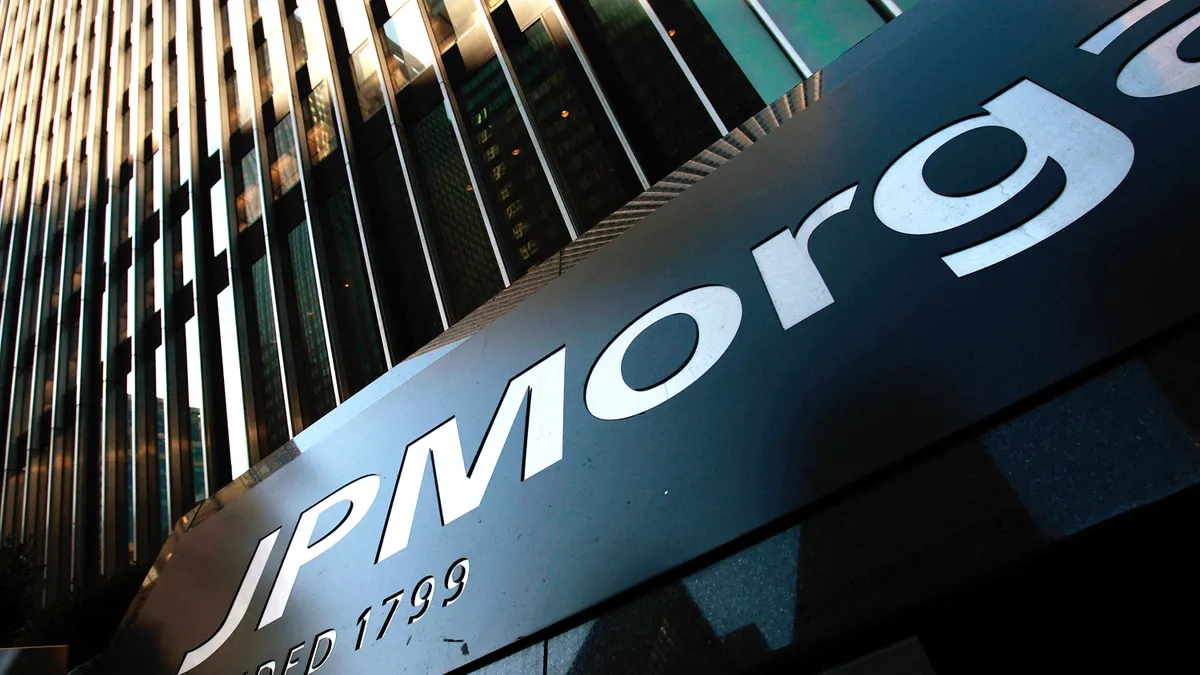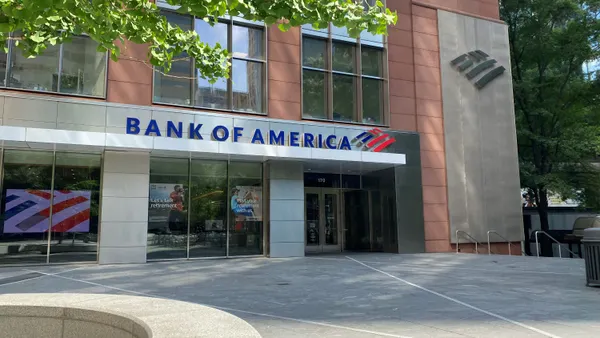JPMorgan Chase’s compensation committee gave Daniel Pinto, the bank’s co-president, a "special award" of 750,000 restricted share options as part of the bank’s "retention planning," the company said in a securities filing Wednesday.
The award, worth roughly $25 million based on Tuesday’s average JPMorgan stock price of $159.09, is connected to Pinto’s promotion next month as the bank’s sole president following the departure of Gordon Smith at year’s end.
Pinto, among myriad titles, serves as CEO of JPMorgan’s corporate and investment bank — a segment of the business that, by many accounts, is due heavy bonuses this year. Investment banking revenues at JPMorgan, over the first nine months of 2021, stood at $9.7 billion — 41% higher than the same period last year. Accordingly, the bank is considering a 40% bump in its bonus pool for investment bankers in underwriting and mergers-and-acquisition advisory roles, Bloomberg and the Financial Times reported Tuesday.
That figure dwarfs an estimate that pay consultancy Johnson Associates floated last month, predicting a 30% to 35% jump in bonuses for investment bank underwriters — still the largest single-year increase since 2009 — and a 20% to 25% year-over-year increase in bonuses for investment banking advisers and equities traders.
JPMorgan may not even be the standard-bearer for bonuses this year. Rival Goldman Sachs is reportedly considering increasing its bonus pool by 50% over last year for investment bankers. Goldman’s investment bank saw a 63% year-over-year jump in revenue — to about $10.6 billion — during 2021’s first three quarters. That gave Goldman more revenue over nine months than it had in any previous 12-month span.
"We are a pay-for-performance culture, and there’s no question that people are performing," Goldman CEO David Solomon said in the bank’s October earnings call.
Eric Dobkin, who retired from Goldman in 2016 after nearly five decades there, told Bloomberg performance, though, is not the end focal point.
"You are paying for retention," he said. "This year, the firms may well have to overpay to keep the people they most want."
That tracks with JPMorgan’s motivation in locking Pinto down. The bank, in its filing, said the award "reflects the [committee’s] desire for Mr. Pinto to continue his outstanding leadership in this new role for a further significant number of years."
The awarded options are separate from Pinto’s $24.5 million salary but come with a catch or two: They’re subject to clawback in the event the bank takes a penalty (and, indeed, the bank could pay around $200 million before the end of the year to settle an investigation by two regulators into alleged lapses in communications monitoring, Bloomberg reported last week). The options can’t be exercised for five years, and must be held for 10. Their value, however, could jump to $60 million, pretax, if JPMorgan’s share price increases 50% over the term, or nearly $120 million if the stock price doubles, according to Bloomberg. They also could become worthless if the bank’s stock price drops below its current value when Pinto exercises them.
Pinto wouldn’t be the first big-bank executive to get such a deal this year. Goldman Sachs in October gave Solomon a restricted stock-unit package that could net him roughly $30 million in October 2026. Pinto’s Goldman equivalent, John Waldron, is in line to receive $20 million under a similar stock-option award.
JPMorgan’s board in July gave Pinto’s boss, Jamie Dimon, 1.5 million share options in a gesture to keep him in the C-suite over the long term.
Dimon is not a flight risk. In past years, when asked about a succession timeline, Dimon typically would respond it was five years. This year, JPMorgan’s board just happened to put its money where Dimon’s mouth is.
The bank, though, in May set up a battle between its co-CEOs of consumer and community banking — Jennifer Piepszak and Marianne Lake — that would position one of them to eventually succeed Dimon. In the short term, however, that role would presumably go to Pinto — and this week’s award backs up that strategy.
The test now is how JPMorgan and Goldman’s pay-for-retention gambit trickles down throughout the rank and file. Expenses from compensation and benefits increased 34% — to $14.5 billion — over the first nine months of 2021 at Goldman, according to the Financial Times.
Some of that encompasses the bank’s move to bump its starting salary for junior investment bankers from $85,000 to $110,000 a year. That increase, announced in August, came five months after a group of Goldman analysts presented to their managers a self-survey detailing "inhumane" 100-hour workweeks, deteriorating physical and mental health and a souring outlook for the future.
Incidentally, the 13 analysts, on average, gave a 35% chance they’d stay at Goldman another six months.











